Fleurs du Mal Magazine


Or see the index
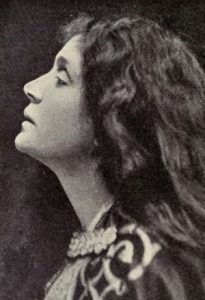
I Thought of You
I thought of you and how you love this beauty,
And walking up the long beach all alone
I heard the waves breaking in measured thunder
As you and I once heard their monotone.
Around me were the echoing dunes, beyond me
The cold and sparkling silver of the sea—
We two will pass through death and ages lengthen
Before you hear that sound again with me.
Sara Teasdale
(1884-1933)
I Thought of You
from: Flame and Shadow
• fleursdumal.nl magazine
More in: #Editors Choice Archiv, Archive S-T, Archive S-T, Teasdale, Sara
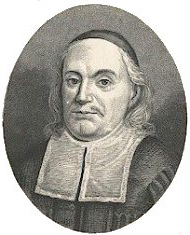
Ich hab oft
bei mir selbst gedacht
Ich hab oft bei mir selbst gedacht,
Wann ich den Lauf der Welt betracht,
Ob auch das Leben dieser Erd
Uns gut sei und des Wünschens wert,
Und ob nicht der viel besser tu,
Der sich fein zeitlich legt zur Ruh.
Denn, Lieber, denk und sage mir:
Was für ein Stand ist wohl allhier,
Dem nicht sein Angst, sein Schmerz und Weh
Alltäglich überm Haupte steh?
Ist auch ein Ort, der Kummers frei
Und ohne Klag und Sorgen sei?
Sieh unsers ganzen Lebens Lauf:
Ist auch ein Tag von Jugend auf,
Der nicht sein eigne Qual und Plag
Auf seinem Rücken mit sich trag?
Ist nicht die Freude, die uns stillt,
Auch selbst mit Jammer überfüllt?
Hat einer Glück und gute Zeit,
Hilf Gott, wie tobt und zürnt der Neid!
Hat einer Ehr und große Würd,
Ach, mit was großer Last und Bürd
Ist, der vor andern ist geehrt,
Vor andern auch dabei beschwert!
Ist einer heute gutes Muts,
Ergötzt und freut sich seines Guts:
Eh ers vermeint, fährt sein Gewinn
Zusamt dem guten Mute hin!
Wie plötzlich kommt ein Ungestüm
Und wirft die großen Güter üm!
Bist du denn fromm und fleuchst die Welt
Und liebst Gott mehr als Gold und Geld,
So wird dein Ruhm, dein Schmuck und Kron
In aller Welt zu Spott und Hohn;
Denn wer der Welt nicht heucheln kann,
Den sieht die Welt für albern an.
Nun, es ist wahr, es steht uns hier
Die Trübsal täglich vor der Tür,
Und findt ein jeder überall
Des Kreuzes Not und bittre Gall.
Sollt aber drum der Christen Licht
Ganz nichts mehr sein? Das glaub ich nicht.
Ein Christe, der an Christo klebt,
Und stets im Geist und Glauben lebt,
Dem kann kein Unglück, keine Pein
Im ganzen Leben schädlich sein;
Gehts ihm nicht allzeit wie es soll,
So ist ihm dennoch allzeit wohl.
Hat er nicht Gold, so hat er Gott,
Fragt nicht nach böser Leute Spott,
Verwirft mit Freuden und verlacht
Der Welt verkehrten Stolz und Pracht.
Sein Ehr ist Hoffnung und Geduld,
Sein Hoheit ist des Höchsten Huld.
Es weiß ein Christ und bleibt dabei,
Daß Gott sein Freund und Vater sei;
Er hau, er brenn, er stech, er schneid,
Hier ist nichts, das uns von ihm scheid,
Je mehr er schlägt, je mehr er liebt,
Bleibt fromm, ob er uns gleich betrübt.
Laß alles fallen, wie es fällt:
Wer Christi Lieb im Herzen hält,
Der ist ein Held und bleibt bestehn,
Wann Erd und Himmel untergehn;
Und wann ihn alle Welt verläßt,
Hält Gottes Wort ihn steif und fest.
Des Höchsten Wort dämpft alles Leid
Und kehrts in lauter Lust und Freud;
Es nimmt dem Unglück alles Gift,
Daß, obs uns gleich verfolgt und trifft,
Es dennoch unser Herze nie
In allzu große Trauer zieh.
Ei nun, so mäßge deine Klag!
Ist dieses Leben voller Plag,
Ists dennoch an der Christen Teil
Auch voller Gottes Schutz und Heil.
Wer Gott vertraut und Christum ehrt,
Der bleibt im Kreuz auch unversehrt.
Gleichwie das Gold durchs Feuer geht
Und in dem Ofen wohl besteht,
So bleibt ein Christ durch Gottes Gnad
Im Elendsofen ohne Schad;
Ein Kind bleibt seines Vaters Kind,
Obs gleich des Vaters Zucht empfindt.
Drum, liebes Herz, sei ohne Scheu
Und sieh auf deines Vaters Treu!
Empfindst du auch hier seine Rut,
Er meints nicht bös, es ist dir gut!
Gib dich getrost in seine Händ,
Es nimmt zuletzt ein gutes End.
Leb immerhin, so lang er will!
Ists Leben schwer, so sei du still,
Es geht zuletzt in Freuden aus:
Im Himmel ist ein schönes Haus,
Da, wer nach Christo hier gestrebt,
Mit Christi Engeln ewig lebt!
Paul Gerhardt
(1607 – 1676)
Ich hab oft bei mir selbst gedacht
• fleursdumal.nl magazine
More in: # Classic Poetry Archive, Archive G-H, Archive G-H

The Knife
Can I explain this to you? Your eyes
are entrances the mouths of caves
I issue from wonderful interiors
upon a blessed sea and a fine day,
from inside these caves I look and dream.
Your hair explicable as a waterfall
in some black liquid cooled by legend
fell across my thought in a moment
became a garment I am naked without
lines drawn across through morning and evening.
And in your body each minute I died
moving your thigh could disinter me
from a grave in a distant city:
your breasts deserted by cloth, clothed in twilight
filled me with tears, sweet cups of flesh.
Yes, to touch two fingers made us worlds
stars, waters, promontories, chaos
swooning in elements without form or time
come down through long seas among sea marvels
embracing like survivors in our islands.
This I think happened to us together
though now no shadow of it flickers in your hands
your eyes look down on ordinary streets
If I talk to you I might be a bird
with a message, a dead man, a photograph.
Keith Douglas
(1920 – 1944)
The Knife
• fleursdumal.nl magazine
More in: Archive C-D, Archive C-D, Douglas, Keith, WAR & PEACE

Intrede
As van kerstdromen
dwarrelt door de lucht
naast spokend karkas van
te jong gestorven boom.
Afvallige dozen, groot
fladderen over de weg
als losgebroken vogels
een paard zonder toom.
Aan slierten rouw klampt
oude jaar zich nog vast
gelijk geest die vergaat
het aanzien niet waard.
Rode ogen hoog boven
zwarte regenjassen staren
ins graue hinein tot de
eerste schok is bedaard.
Freda Kamphuis
Intrede
Gedicht uit poëziebundel :
TITEL, Uitgeverij Voetnoot, Antwerpen, 2014
•fleursdumal.nl magazine
More in: Archive K-L, Archive K-L, Kamphuis, Freda

Hoe het kan gaan
Ik hoor een man zeggen hoe hij vernomen had
dat zijn moeder begraven gaat worden en dat
hij in een stoffig album wel foto’s van haar zou
gaan bekijken. Erheen? Neen. Want zij. Toen
hij. Te lang. En daarna. Zijn smoesjes buitelen
over elkaar heen als lottoballetjes in de trommel.
Bert Bevers
Hoe het kan gaan
Gedicht
•fleursdumal.nl magazine
More in: Archive A-B, Archive A-B, Bevers, Bert
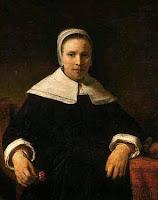
Winter
Cold, moist, young phlegmy winter now doth lie
In swaddling clouts, like new-born infancy;
Bound up with frosts, and fur’d with hail & snows,
And, like an infant, still it taller grows.
December is my first, and now the sun
To the southward Tropick his swift race doth run.
This month he’s hous’d in horned Capricorn,
From thence he ’gins to length the shortened morn,
Through Christendom with great festivity,
Now’s held (but guessed) for blest Nativity.
Cold, frozen January next comes in,
Chilling the blood, and shrinking up the skin.
In Aquarius now keeps the long-wish’d sun,
And northward his unwearied course doth run.
The day much longer than it was before,
The cold not lessened, but augmented more.
Now toes and ears, and fingers often freeze,
And travelers their noses sometimes leese.
Moist snowy February is my last,
I care not how the winter-time doth haste.
In Pisces now the golden sun doth shine,
And northward still approaches to the line.
The rivers ’gin to ope, the snows to melt,
And some warm glances from his face are felt;
Which is increased by the lengthen’d day,
Until by’s heat, he drive all cold away.
And thus the year in circle runneth round;
Where first it did begin, in th’ end its found.
Anne Bradstreet
(1612 – 1672)
Winter
• fleursdumal.nl magazine
More in: # Classic Poetry Archive, 4SEASONS#Winter, Archive A-B, Archive A-B, Bradstreet, Anne
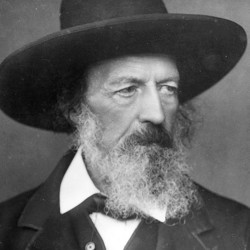
Milton
(Alcaics)
O mighty-mouth’d inventor of harmonies,
O skill’d to sing of Time or Eternity,
God-gifted organ-voice of England,
Milton, a name to resound for ages;
Whose Titan angels, Gabriel, Abdiel,
Starr’d from Jehovah’s gorgeous armouries,
Tower, as the deep-domed empyrean
Rings to the roar of an angel onset—
Me rather all that bowery loneliness,
The brooks of Eden mazily murmuring,
And bloom profuse and cedar arches
Charm, as a wanderer out in ocean,
Where some refulgent sunset of India
Streams o’er a rich ambrosial ocean isle,
And crimson-hued the stately palm-woods
Whisper in odorous heights of even.
Alfred Lord Tennyson
(1809-1892)
Milton
• fleursdumal.nl magazine
More in: Archive S-T, Archive S-T, Milton, John, Tennyson, Alfred Lord

Den Geist?
Den Geist?
Als ob es Weiber gäbe,
die ihn liebten.
Schöne Gestalt gefällt ihnen
und Reichtum.
Ulrich von Hutten
Ritter und Dichter
(* 21.04.1488, † 29.08.1523)
Den Geist?
• fleursdumal.nl magazine
More in: #Editors Choice Archiv, - Archive Tombeau de la jeunesse, Archive G-H, Archive G-H, Hutten, Ulrich von
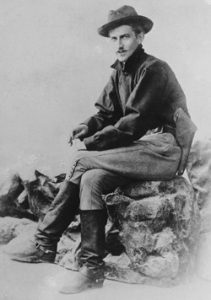
Do not weep, maiden, for war is kind
Do not weep, maiden, for war is kind.
Because your lover threw wild hands toward the sky
And the affrighted steed ran on alone,
Do not weep.
War is kind.
Hoarse, booming drums of the regiment,
Little souls who thirst for fight,
These men were born to drill and die.
The unexplained glory flies above them,
Great is the battle-god, great, and his kingdom—
A field where a thousand corpses lie.
Do not weep, babe, for war is kind.
Because your father tumbled in the yellow trenches,
Raged at his breast, gulped and died,
Do not weep.
War is kind.
Swift, blazing flag of the regiment,
Eagle with crest of red and gold,
These men were born to drill and die.
Point for them the virtue of slaughter,
Make plain to them the excellence of killing
And a field where a thousand corpses lie.
Mother whose heart hung humble as a button
On the bright splendid shroud of your son,
Do not weep.
War is kind.
Stephen Crane
(1871 – 1900)
Do not weep, maiden, for war is kind
from: War is Kind
•fleursdumal.nl magazine
More in: *War Poetry Archive, Archive C-D, Archive C-D, Stephen Crane

Oxford
At home as in no other city, here
summer holds her breath in a dark street
the trees nocturnally scented, lovers like moths
go by silently on the footpaths
and spirits of the young wait,
cannot be expelled, multiply each year.
In the meadows, walks, over the walls
the sunlight, far-travelled, tired and content,
warms the recollections of old men, touching
the hand of the scholar on his book, marching
through quadrangles and arches, at last spent
it leans through the stained windows and falls.
This then is the city of young men, of beginning,
ideas, trials, pardonable follies,
the lightness, seriousness and sorrow of youth.
And the city of the old, looking for truth,
browsing for years, the mind’s seven bellies
filled, become legendary figures, seeming
stones of the city, her venerable towers;
dignified, clothed by erudition and time.
For them it is not a city but an existence;
outside which everything is a pretence:
within, the leisurely immortals dream,
venerated and spared by the ominous hours.
Keith Douglas
(1920 – 1944)
Oxford
• fleursdumal.nl magazine
More in: # Classic Poetry Archive, Archive C-D, Archive C-D, Douglas, Keith, WAR & PEACE
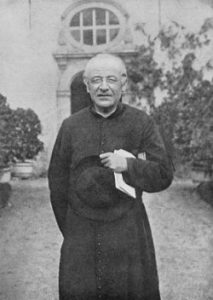
Het Schrijverken
(Gyrinus Natans)
O Krinklende winklende waterding
met ‘t zwarte kabotseken aan,
wat zien ik toch geren uw kopke flink
al schrijven op ‘t waterke gaan!
Gij leeft en gij roert en gij loopt zo snel,
al zie ‘k u noch arrem noch been;
gij wendt en gij weet uwen weg zo wel,
al zie ‘k u geen ooge, geen één.
Wat waart, of wat zijt, of wat zult gij zijn?
Verklaar het en zeg het mij, toe!
Wat zijt gij toch, blinkende knopke fijn,
dat nimmer van schrijven zijt moe?
Gij loopt over ‘t spegelend water klaar,
en ‘t water niet meer en verroert
dan of het een gladdige windtje waar,
dat stille over ‘t waterke voert.
o Schrijverkes, schrijverkes, zegt mij dan, –
met twintigen zijt gij en meer,
en is er geen een die ‘t mij zeggen kan: –
Wat schrijft en wat schrijft gij zo zeer?
Gij schrijft, en ‘t en staat in het water niet,
gij schrijft, en ‘t is uit en ‘t is weg;
geen christen en weet er wat dat bediedt:
och, schrijverke, zeg het mij, zeg!
Zijn ‘t visselkes daar ge van schrijven moet?
Zijn ‘t kruidekes daar ge van schrijft?
Zijn ‘t keikes of bladtjes of blomkes zoet,
of ‘t water, waarop dat ge drijft?
Zijn ‘t vogelkes, kwietlende klachtgepiep,
of is ‘et het blauwe gewelf,
dat onder en boven u blinkt, zoo diep,
of is het u, schrijverken zelf?
En t krinklende winklende waterding,
met ‘t zwarte kapoteken aan,
het stelde en het rechtte zijne oorkes flink,
en ‘t bleef daar een stondeke staan:
“Wij schrijven,” zoo sprak het, “al krinklen af
het gene onze Meester, weleer,
ons makend en leerend, te schrijven gaf,
één lesse, niet min nochte meer;
wij schrijven, en kunt gij die lesse toch
niet lezen, en zijt gij zo bot?
Wij schrijven, herschrijven en schrijven nog,
den heiligen Name van God!”
Guido Gezelle
(1830 – 1899)
Het Schrijverken
Uit: Vlaemsche dichtoefeningen
• fleursdumal.nl magazine
More in: Archive G-H, Archive G-H, Gezelle, Guido, Guido Gezelle

freda kamphuis
mens met witte pet
• fleursdumal.nl magazine
More in: Archive K-L, Archive K-L, Freda Kamphuis, Kamphuis, Freda, Photography
Thank you for reading Fleurs du Mal - magazine for art & literature